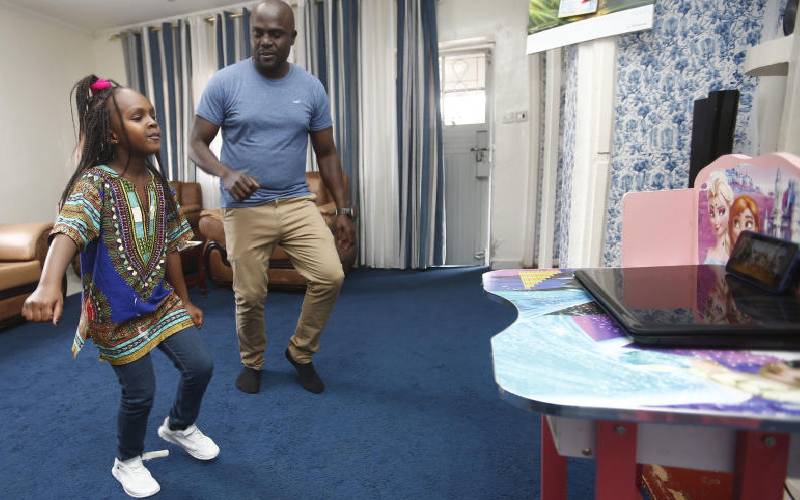×
The Standard e-Paper
Stay Informed, Even Offline

Alawia Achieng, a pupil at Children in Freedom school, dances with her father during an online lesson at home in Lanet Nakuru county. [File, Standard]
The government, through the Ministry of Health, has done a stellar job in keeping Kenyans abreast with issues pertaining to Covid-19.